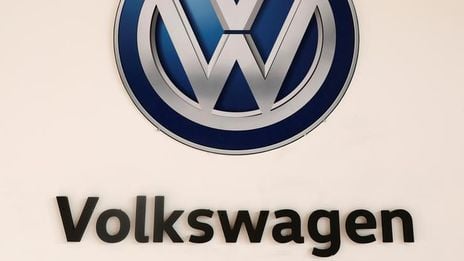By Kim Richters
Volkswagen AG on Tuesday raised its midterm profitability target, honing its ambitions to shift to battery-electric vehicles and tap future revenue streams from software and mobility services through the end of the decade.
The German car maker, whose brands include namesake VW cars, Seat, Skoda, Audi and Porsche, now targets an operating return on sales of 8% to 9% in 2025, up from 7% to 8% previously.
The guidance came as the car maker presented its strategy through 2030, fleshing out plans for battery plants, software and technology synergies.
"We set ourselves a strategic target to become global market leader in electric vehicles--and we are well on track," said Volkswagen's Chief Executive Herbert Diess, whose mandate was recently extended until late 2025.
"Based on software, the next much more radical change is the transition towards much safer, smarter and finally autonomous cars," Mr. Diess said, as the auto maker stressed its expectation of profit and revenue pools to gradually transition from cars with internal combustion engines to battery-electric vehicles, software and services.
Integral to Volkswagen's strategy is securing battery supply and taking control of production by investing in six large battery factories across Europe. As announced in March this year, the factories, including one in Sweden operated by partner Northvolt AB, should have a total production capacity of 240 gigawatt hours by 2030.
On Tuesday, the auto maker said it is also teaming up with China's Gotion High-Tech for one plant in Salzgitter, Germany, and will start production there in 2025. Another factory could be opened in Spain with another partner, with the intention of making the country a strategic pillar of its electric plans, the auto maker said.
While Volkswagen expects the market for internal combustion engines to decline by more than 20% over the next 10 years, the business's current robust margins and strong cashflows is helping to finance and accelerate the company's shift to battery-electric vehicles, it said.
It had already earmarked 73 billion euros ($86.60 billion) for investments in what it describes as future technologies from 2021 through 2025, representing half of its total investments--and a share that it expects to increase in the future.
Analysts view Volkswagen's electric strategy as positive but some have pointed to slow fully-electric vehicle sales, in particular the performance of the company's flagship ID vehicles in China. While Volkswagen plans a 50% battery-electric vehicle share in global deliveries and a share of around 60% in Europe by 2030, the car maker's global BEV share was around 2.5% in 2020.
"Volkswagen is at the forefront of the first disruption stage in the automotive industry, electric mobility. In the second disruption stage, autonomous driving, this is likely to be much more difficult in view of the tech companies," said Frank Schwope, analyst at German bank NORD/LB.
Write to Kim Richters at kim.richters@wsj.com
(END) Dow Jones Newswires
07-13-21 1212ET





